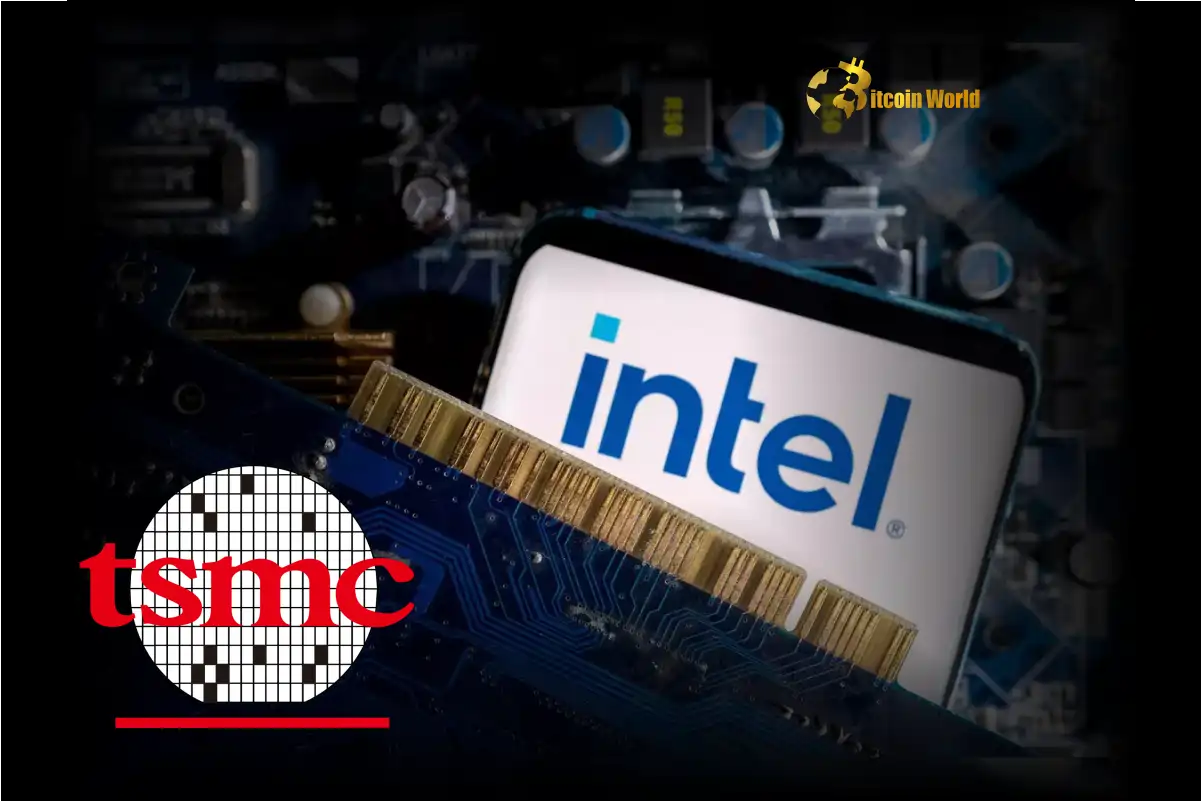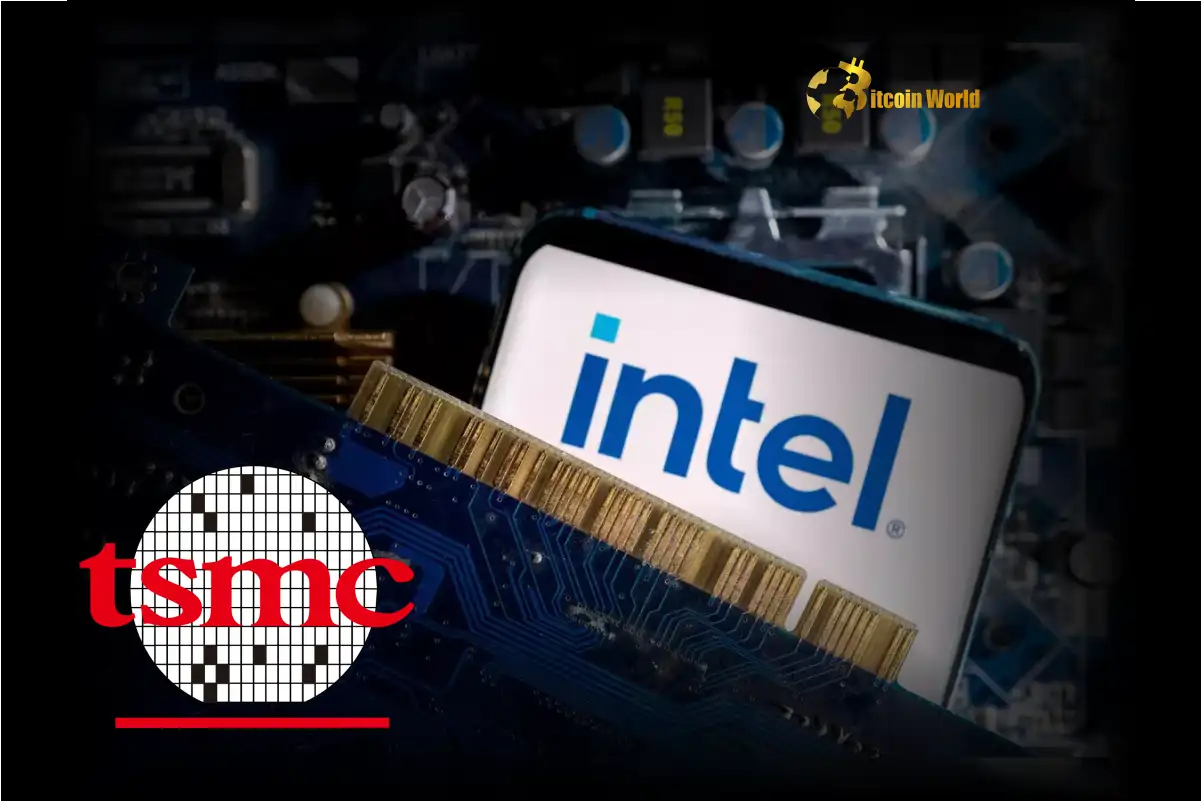The tech world is buzzing with news of a potential game-changer! Semiconductor giants Intel and TSMC are reportedly joining forces in a groundbreaking Intel TSMC venture. This collaboration could redefine the future of chipmaking and significantly impact the semiconductor landscape. Let’s dive into what this exciting development could mean for the industry and beyond.
Why is the Intel TSMC Venture a Potential Revolution for Chipmaking?
Imagine two titans of the tech world, Intel and TSMC, combining their strengths. This isn’t just a simple partnership; it’s rumored to be a joint venture where TSMC takes a 20% stake in Intel’s chip manufacturing facilities. But instead of just cash, TSMC is bringing something even more valuable to the table: its expertise. They’ll be sharing their advanced chipmaking practices and training Intel’s workforce. This is a strategic move that could have far-reaching consequences.
Here’s a breakdown of what makes this Intel TSMC venture so significant:
- Revitalizing Intel’s Manufacturing: Intel has been facing challenges in its chip manufacturing processes. TSMC’s involvement could inject fresh knowledge and cutting-edge techniques, potentially accelerating Intel’s turnaround efforts.
- Boosting Semiconductor Production: By combining resources and expertise, this joint venture could lead to increased production capacity in the crucial semiconductor sector. This is particularly important given the ongoing global chip shortages.
- Strengthening the Tech Industry: A stronger Intel, powered by TSMC’s know-how, means a more competitive and robust tech industry overall. This collaboration could foster innovation and drive progress across various technological domains.
- Geopolitical Implications: The reported involvement of the Trump Administration in initiating these discussions highlights the strategic importance of domestic chip manufacturing. This venture could be seen as a move to bolster US chipmaking capabilities.
What Challenges Could This Chipmaking Venture Face?
While the potential benefits are immense, any major undertaking like this comes with its set of challenges. Integrating two different corporate cultures and operational styles is no small feat. Let’s consider some potential hurdles:
| Challenge | Description |
|---|---|
| Integration Complexities | Merging Intel’s established infrastructure and processes with TSMC’s methodologies requires careful planning and execution. Ensuring smooth operational integration will be crucial. |
| Intel Employee Concerns | Reports suggest Intel executives are worried about potential mass layoffs. Managing employee morale and ensuring job security during this transition will be critical for the venture’s success. |
| Knowledge Transfer Effectiveness | The success of this venture hinges on the effective transfer of chipmaking practices from TSMC to Intel. Ensuring that knowledge sharing is efficient and impactful is paramount. |
| Market Competition | The semiconductor industry is fiercely competitive. The joint venture will need to navigate existing rivalries and adapt to evolving market dynamics to maintain a competitive edge. |
Artificial Intelligence Chips: A Key Driver?
The timing of this potential Intel TSMC venture is particularly noteworthy. The demand for artificial intelligence chips is skyrocketing, driven by the rapid advancements in AI and machine learning. Could this partnership be strategically aimed at capturing a larger share of the burgeoning AI chip market?
It’s highly likely. Both Intel and TSMC are major players in the artificial intelligence chips space. By combining their strengths, they could create a formidable force in the development and manufacturing of next-generation AI processors. This could have significant implications for the future of AI innovation and deployment across various sectors.
Actionable Insights: What Does This Mean for the Tech World?
This potential Intel TSMC venture is more than just a business deal; it’s a signal of significant shifts in the tech industry. Here are some key takeaways:
- Increased Competition: The partnership could intensify competition in the semiconductor and chipmaking sectors, potentially leading to faster innovation and better products for consumers.
- Supply Chain Resilience: Strengthening domestic chip manufacturing capabilities can enhance supply chain resilience, reducing reliance on geographically concentrated production.
- Investment Opportunities: This development could attract further investment into the semiconductor industry, fueling growth and creating new opportunities.
- Focus on AI: The venture underscores the growing importance of artificial intelligence chips and the strategic race to dominate this critical technology.
In Conclusion: A Bold Move with Transformative Potential
The rumored Intel TSMC venture represents a bold and potentially transformative move in the tech industry. While challenges undoubtedly exist, the potential benefits – revitalizing Intel, boosting chipmaking capacity, and strengthening the semiconductor ecosystem – are substantial. As the demand for artificial intelligence chips continues to surge, this partnership could position Intel and TSMC at the forefront of a new era in technological innovation. The industry will be watching closely to see how this exciting development unfolds.
To learn more about the latest AI market trends, explore our article on key developments shaping AI features.






